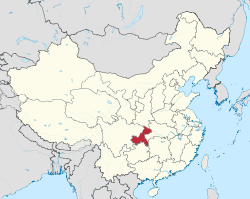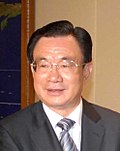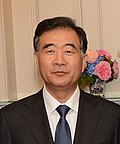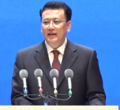Chongqing model
| Politics of Chongqing | |||||||
|---|---|---|---|---|---|---|---|
 Location of Chongqing | |||||||
| Simplified Chinese | 重庆模式 | ||||||
| Traditional Chinese | 重慶模式 | ||||||
| |||||||
The "Chongqing model" was a series of social and economic policies adopted in the Chinese megalopolis of Chongqing. It is most closely associated with Bo Xilai,who served as the city's Communist Party secretary from 2007 to 2012,though some policies were put in place by Bo's predecessors.
The Chongqing model was characterized in part by increased state control and the promotion of a neo-leftist ideology. It involved a sweeping and sometimes extrajudicial campaign against organized crime,and increased the security and police presence in the city. As a means of addressing declining public morality,Bo launched a "red culture" movement to promote Maoist-era socialist ethics. On the economic front,he actively courted foreign investment and focused on manufacturing for domestic consumption. The Chongqing model was also characterized by massive public works programs,subsidized housing for the poor,and social policies intended to make it easier for rural citizens to move to the city.
The Chongqing model represented an alternative model of development which diverged from the policies favored by the reformist faction led by Party general secretary Hu Jintao and Premier Wen Jiabao,as well as the model put by the Guangdong CCP committee secretary Wang Yang. When Bo Xilai was removed from his posts in the spring of 2012,authorities began a campaign to reverse several of the policies that characterized the Chongqing model,including by cracking down on expressions of "red culture". Individuals,who believed they had been wrongly persecuted under the anti-corruption campaign,also began seeking legal redress.















